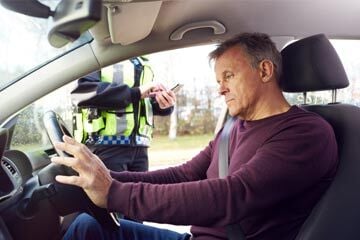If you don't declare medical conditions that affect your driving to your car insurance provider, you risk invalidating your policy. This is because these medical conditions can affect your ability to drive safely.
But which medical conditions have to be declared for car insurance? Here's what you need to know

Medical conditions and your car insurance
If you have an undisclosed medical condition, it could affect your car insurance and have serious consequences.
If you claim on your car insurance and have a medical condition that impacts your ability to drive, it could potentially invalidate your claim.
So it's vital to tell your car insurer about any medical conditions when you buy car insurance, or when you're diagnosed with a serious medical condition.
You may need to pay more as a result but you should at least get the peace of mind that your cover is still valid.
Which medical conditions do I need to tell my car insurance company about?
You should tell your insurer about any medical condition that comes under the list of 'notifiable' conditions with the DVLA. You can find the full list on the government website, but some of the more common conditions include:
Driving with epilepsy
If you've had an epileptic seizure and you've lost consciousness, the DVLA will take your licence away.
You can reapply to get it back after 6 months, provided you've not had any seizures for that time.
The type of seizure is also important, for example if you only get them at night.
Medical advisors will act on the information you and your doctors send them about your epilepsy. For more information visit GOV.UK.
Driving after a stroke
You only need to notify the DVLA if you’re still having problems 1 month after having a stroke.
If you’re not sure whether you’re fit to drive, then you can ask your doctor whether you need to notify DVLA.
Driving with diabetes
Whether you need to notify the DVLA about your diabetes largely depends on what type of medication you’re on.
If your condition is treated by tablets or non-insulin injections, check with your doctor to find out whether you need to notify the DVLA.
If your diabetes is treated with insulin for more than 3 months, then you must notify the DVLA.
Driving with cancer
You only need to notify the DVLA about having cancer if:
- Your doctor tells you to
- There are problems with your brain or nervous system
- You're restricted to certain vehicles that have been adapted for you
- Your medication gives you side-effects which impair your ability to drive
Driving with a heart condition
Whether or not you can drive with heart problems depends on the nature and severity of your condition.
If you can't drive for 3 months or more you must surrender your licence and apply for it again once you’re fit to drive.
Driving with a hearing condition
If you're driving a car or motorcycle you don't need to notify the DVLA that you’re deaf. However you need to notify the DVLA if you hold a bus, coach or lorry licence.
Driving on medication
Some medicines affect your ability to drive safely. If you're prescribed any of the following it’s vital to discuss driving with your doctor first:
- Amphetamines such as dextroamphetamine and selegiline
- Clonazepam
- Diazepam
- Flunitrazepam
- Lorazepam
- Methadone
- Morphine or opiate based drugs (such as codeine, tramadol or fentanyl)
- Oxazepam
- Temazepam
You may still be able to drive while taking these drugs, but you need to take advice from the doctor prescribing them. There are strict drug driving limits, even for prescription medication. You can get more information on how certain prescription drugs can affect you from our drug driving calculator.
Does my car insurance cover me for driving after surgery?
Yes, your car insurance should cover you if you're recovering from surgery, provided your doctor says you're fit to drive.
If you've had a general anaesthetic you can't drive for at least 48 hours.
Beyond that, you must follow the advice of your doctor. They’ll want to know, for example, you’re comfortable in the driving position and fully able to perform an emergency stop.
It's always a good idea to inform your insurance company or check your policy wording - some policies might require you to stop driving for a period of time.
Do conditions like autism and ADHD impact car insurance?
No, these conditions shouldn't normally impact your car insurance policy.
If you have an autistic spectrum condition (ASC) or attention deficit hyperactivity disorder (ADHD), you don't need to tell your insurance company or the DVLA unless:
- Your condition changes enough to impact the safety of your driving
- The side effects of any medication you're on impact your driving
Other health conditions and driving
This guide has only covered some of the medical conditions that can affect your ability to drive safety.
In general, if you have a condition that impacts your ability to drive safely, you should notify your car insurance company and the DVLA.
And if you're not sure whether a condition could affect your driving then you should always seek professional medical advice.







